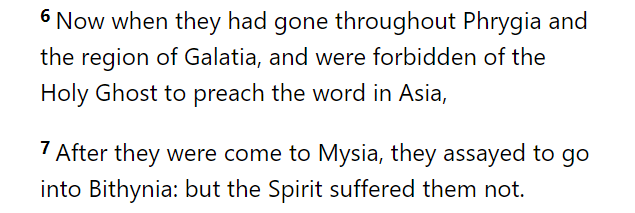A scene from The Canterbury Psalter (12th century)
Blog
Holy Spirit, Holy Ghost

“What’s the difference between the Holy Spirit & the Holy Ghost?” This is the most surprising question I get, doing interviews since publishing a book on the third person of the Trinity. It comes up often in Q&A! People want to know, so I figured I’d answer it here on Halloween.
There’s no difference; same person.
So why do we have two expressions? A quick answer is that “ghost” is a more old-fashioned English word for “spirit.” So if you’re reading an older English translation (KJV & company), or singing or reciting anything based on it, you’ll be comfortable saying “Holy Ghost.”
Meanwhile, English changes, & “ghost” long ago stopped meaning “spiritual” in general usage. It now mainly suggests an apparition of the dead. So recent translations (Revised Version 1885 on) mostly say “Holy Spirit.” Less explaining, less spooky, still faithful to the original.
But old vs new isn’t quite the whole story. The 1611 KJV has both. It mostly says “Holy Ghost” (90 times), but occasionally opts for “Holy Spirit” (7 times, 4 in NT). (search here)
In Acts 16:7, you see KJV rendering “tou hagiou pneumatos” as “the Holy Ghost,” & in the next verse “to pneuma iesou” as “the spirit of Jesus.” Lots going on there, but it shows that even 17th-c translators had both ghost & spirit in their toolkits as simultaneous options.

My guess on Acts 16 is “Holy Ghost” was already traditional (it’s in Wycliffe & Tyndale), but “ghost of Jesus” would suggest a dead man haunting the apostles. If that’s right (it’s a hunch, don’t print it) “ghost” was already not the perfect all-purpose English word in 1611.
Behind all this is our typical English-language dilemma, the blessing & curse of having two words for nearly everything: a word from the Teutonic/Saxon roots (gast, geist, ghost) & a word from the Latin/romance roots (spiritus, esprit, spirit).
So you could say, it’s not so much that ‘Holy Ghost’ is old-fashioned and ‘Holy Spirit’ is more updated, so much as “Ghost” is germanic & “Spirit” is latinate. And latinate words tend to sound more elevated & sophisticated than the short, sharp Saxon sounds.
But the full story is probably a mixture of the two: punchy germanic Ghost yielding to smooth latinate Spirit over the course of centuries, as speakers reached for a word that felt right for what they were talking about.
It’s possible that the KJV’s classic status, owing partly to its literary awesomeness, slowed the movement toward “Spirit,” making the 1885 revised version a bit of a lurch.
But anyway, that’s my longer answer to ‘What’s the difference between the Holy Ghost and the Holy Spirit?’ If you want to see my more substantive teaching on the doctrine of the Holy Spirit, the new book is here.
___________________
Image: Luke 11:13 from Cranmer, Geneva, and Rheims translations. From the English Hexapla.
About This Blog

Fred Sanders is a theologian who tried to specialize in the doctrine of the Trinity, but found that everything in Christian life and thought is connected to the triune God.


